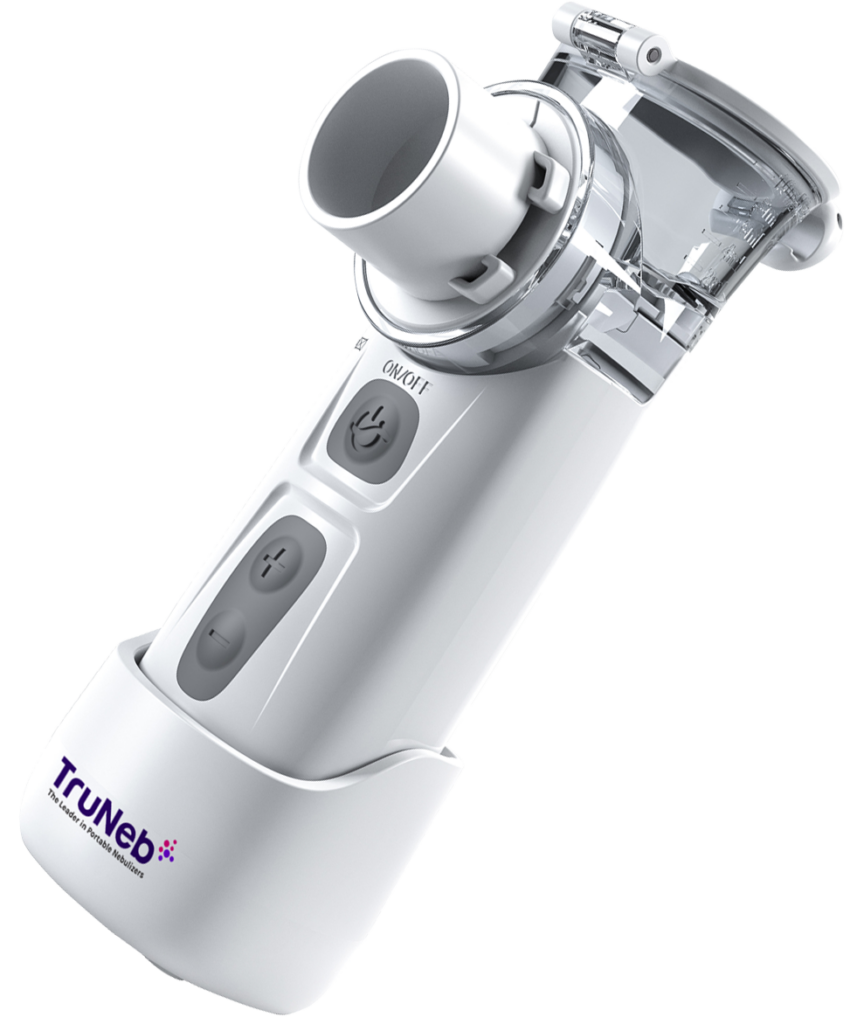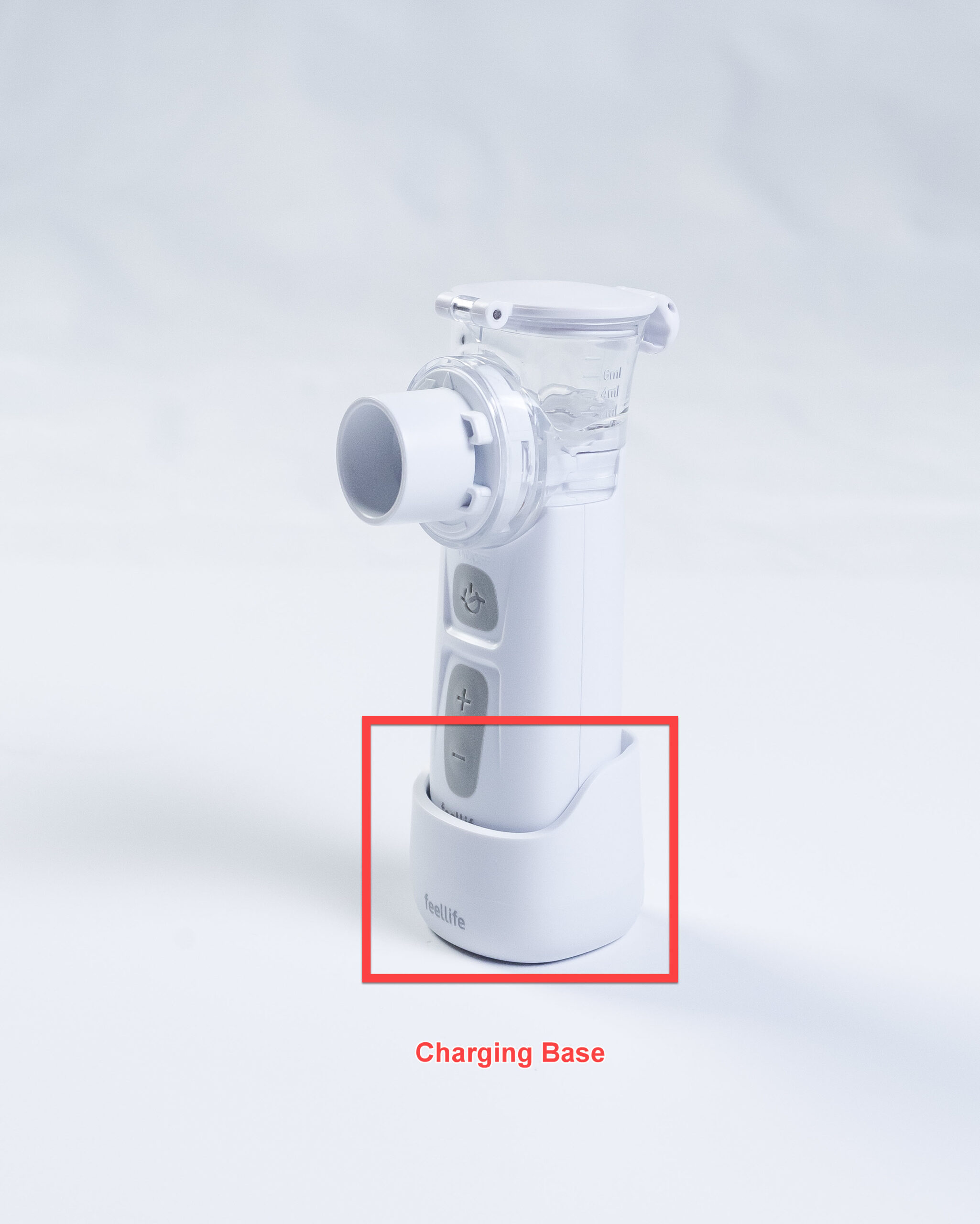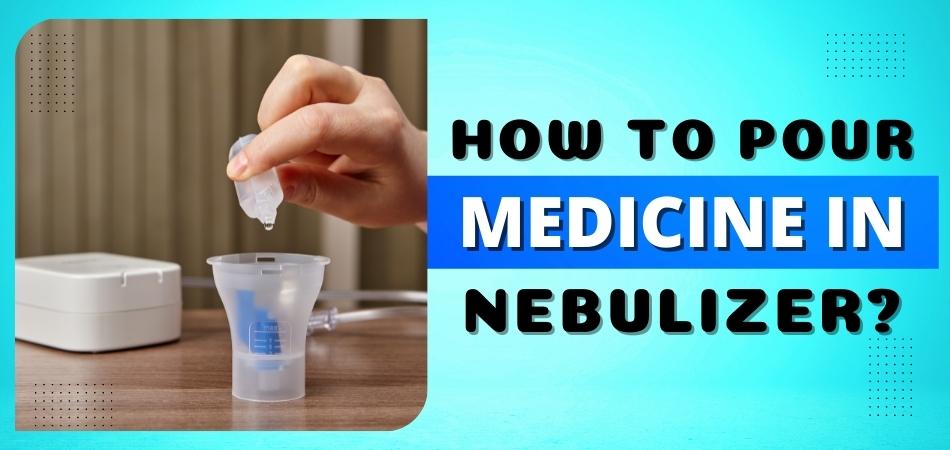If you’re one of the 25 million Americans who suffer from asthma, then you’re probably familiar with nebulizer treatments. Nebulizers turn asthma medication into a mist that can be inhaled directly into your lungs and are an extremely effective way to manage your asthma symptoms.
A nebulizer treatment is a common respiratory therapy that can be used to treat a variety of conditions. This treatment involves the use of an inhaler to deliver medication in the form of a mist or vapor.
Nebulizer treatments usually last between five and 15 minutes. During this time, you should sit upright and breathe slowly and deeply. The medication will start to work right away and you should begin to feel relief from your symptoms within a few minutes.
Nebulizers are often prescribed for people with asthma, COPD, and other respiratory disorders. By delivering medication directly to the lungs, nebulizer treatments can help improve breathing and reduce symptoms.
In this blog post, we’ll discuss what nebulizer treatments are.
What is Nebulizer Treatments Used For?
Nebulizer treatments are most commonly used to deliver medication to the lungs in a fine mist. This makes it easier for the lungs to absorb the medication and can be especially helpful for treating conditions like asthma, bronchitis, and COPD. Nebulizers can also be used to deliver humidified air to help with respiratory distress.

Nebulizer treatments are commonly used to treat pulmonary conditions with a nebulizer machine. A nebulizer machine is a small, handheld device that uses compressed air to turn liquid medication into a fine mist that can be inhaled through a mouthpiece or mask.
This type of treatment is often prescribed for people with asthma, bronchitis, and other conditions that affect the lungs. The medication is typically inhaled for five to 15 minutes, three to four times per day.
Nebulizer treatments can help to deliver medication directly to the lungs, where it can be quickly absorbed and start working right away.
In addition, nebulizer treatments can help to reduce symptoms such as coughing, wheezing, and shortness of breath. As a result, they are an important part of many people’s ongoing treatment plans.
What are the Side Effects of Using a Nebulizer?
A nebulizer is a device that delivers liquid medication to your lungs in the form of a mist. It’s often used to treat conditions such as asthma, COPD, and cystic fibrosis. Nebulizers are generally safe, but there are some potential side effects that you should be aware of. These include:
- Throat irritation – The mist from the nebulizer can sometimes cause throat irritation. This is usually temporary and goes away once you stop using the nebulizer. However, if it persists or gets worse, please consult your doctor.
- Coughing – Some people may experience coughing while using a nebulizer. Again, this is usually temporary and will go away when you stop using the nebulizer. However, if it persists or gets worse, please consult your doctor.
- Dry mouth – Some people may experience dry mouth while using a nebulizer. This is due to the fact that the mist from the nebulizer can evaporate quickly, leaving your mouth feeling dry.
This side effect is usually not serious and goes away once you stop using the nebulizer. However, if it persists or gets worse. please consult your doctor.
When Should You Use a Nebulizer?
A nebulizer is a device that delivers liquid medicine in the form of a mist, which you then inhale. It’s commonly used to treat conditions like asthma, COPD, and cystic fibrosis. Nebulizers are most effective when used with bronchodilators, drugs that open up the airways in your lungs.

These drugs work by relaxing the muscles around your airways so that they can open up and allow more air to flow through. Bronchodilators include beta-agonists (like albuterol) and anticholinergics (like ipratropium). They’re often used together because they work in different ways to relieve symptoms.
Nebulizers are also sometimes used with steroids. Steroids help to reduce inflammation in the lungs, which can be helpful if you have asthma or COPD. How often you use a nebulizer will depend on your condition and how severe it is.
For example, if you have asthma, you might only need it when you have an asthma attack or flare-up. Or if you have COPD, you might use it every day to help manage your symptoms.
What Drugs Are Used in Nebulizers?
Nebulizers are devices that turn liquid medication into a mist, which can then be inhaled through a mouthpiece or mask. They’re commonly used to treat respiratory conditions such as asthma and chronic obstructive pulmonary disease (COPD).
There are many different types and brands of nebulizers, but they all work in basically the same way. The medication is placed in a cup attached to the nebulizer, and then compressed air is used to turn it into a fine mist.
The patient then breathes in the mist through the mouthpiece or mask. Nebulized medications include bronchodilators (such as albuterol), anti-inflammatory drugs (such as budesonide), and antibiotics (such as tobramycin).
Bronchodilators relax the muscles around the airways and help to open them up, while anti-inflammatories reduce swelling and mucus production. Antibiotics are used to treat infections of the lungs or airways.
There are many different brand names for each type of drug, so be sure to ask your doctor or pharmacist which one is right for you.
Nebulized medications are typically covered by insurance, but some plans may require prior authorization before they will cover the cost.
How to Use a Nebulizer without Medication?
If you or a loved one has asthma, COPD, allergies, or another respiratory condition, you may have been prescribed a nebulizer.
A nebulizer is a device that changes liquid medication into a fine mist that can be inhaled through a mouthpiece or mask. Nebulizers are often used to deliver bronchodilators, which help to relax the muscles around the airways and make it easier to breathe.
While most people use nebulizers with medication, it is possible to use them without medication as well. Many people find that using a nebulizer with saline solution (salt water) can help to relieve symptoms such as congestion and coughing.
Saline solution can be purchased at most pharmacies just be sure to get the correct type for your nebulizer (there are different types for different models).
To use a nebulizer without medication, simply fill the reservoir with saline solution and attach it to the machine. Turn on the machine and place the mouthpiece or mask over your mouth and nose. Breathe normally as the mist is released you should start to feel relief within a few minutes.
If needed, you can do up to three treatments per day. Using a nebulizer without medication is safe for most people; however, there are some exceptions. If you have heart disease or high blood pressure, check with your doctor before using this technique.
In addition, if you notice any worsening of your symptoms after using a nebulizer without medication, stop treatment and see your doctor right away.
Medicine Used in Nebulizer for Cough
A nebulizer is a machine that helps to deliver medication in the form of a fine mist. This mist is then inhaled through a mouthpiece or mask. Nebulizers are often used to treat respiratory conditions such as asthma, COPD, and cystic fibrosis. They can also be used to treat other conditions such as allergies, bronchitis, and colds.

Medications used in nebulizers include bronchodilators, corticosteroids, and mucolytics. Bronchodilators help to open up the airways and make breathing easier. Corticosteroids help to reduce inflammation in the airways.
Mucolytics help to break down mucus so that it can be more easily coughed up. Nebulizers can be purchased over the counter or by prescription. They are available in both portable and tabletop models.
Nebulizers are generally safe and effective when used as directed. Some common side effects include coughing, dizziness, and headache.
Serious side effects are rare but can include shortness of breath and chest pain. If you have any concerns about using a nebulizer, talk to your doctor or pharmacist.
If your doctor has recommended a nebulizer for your cough, you may be wondering what type of medicine they will prescribe. There are many different options available, and the best one for you will depend on the severity of your cough and other factors. Here is a look at some of the most common medicines used in nebulizers for treating coughs.
- Albuterol is one of the most commonly prescribed medications for treating coughs with a nebulizer. It is a bronchodilator that works by relaxing the muscles around the airways, making it easier to breathe. Albuterol can provide quick relief from symptoms and is typically well-tolerated by most people.
- Ipratropium bromide is another option that may be prescribed for treating coughing spells with a nebulizer. This medication works by reducing inflammation in the airways, which can help to lessen coughing fits. Ipratropium bromide can provide longer-lasting relief than albuterol, but it may take longer to work and may cause more side effects such as dry mouth or throat irritation.
- Corticosteroids are another type of medication that can be used in a nebulizer to treat a cough. These drugs work by reducing inflammation in the lungs, which can help to make breathing easier and reduce coughing fits. Corticosteroids are usually only prescribed when other treatments have not been effective in reducing symptoms.
They can cause side effects such as dizziness, nausea, or trouble sleeping, so they should be used with caution.
Nebulizer for Kids
Nebulizers are devices that deliver medication in the form of a mist, which can be inhaled through a mouthpiece or mask. Nebulizers are commonly used to treat asthma and other respiratory conditions. Nebulizers for kids are specially designed to make it easier for children to receive their medication.
Some nebulizer models come with child-friendly features such as fun colors and characters. Others have masks that fit more snugly on smaller faces. Nebulizers can be a big help for kids with asthma or other respiratory conditions.
They make it easier to take medication and can actually be fun to use for some kids! If you’re considering a nebulizer for your child, talk to your pediatrician about which model might be best for your family.
Conclusion
Nebulizer treatments are a type of medication that is inhaled as a fine mist. They are commonly used to treat asthma and other respiratory conditions. The medication is typically given through a face mask or mouthpiece, which is attached to the nebulizer.
Nebulizers can be used with either compressed air or oxygen. Compressed air nebulizers are less expensive, but they may not work as well for people who have difficulty breathing. Oxygen nebulizers are more expensive, but they can be more effective for people with respiratory problems.
Nebulizer treatments usually last between five and 15 minutes. The length of time depends on the medication being used and the severity of the person’s condition.



